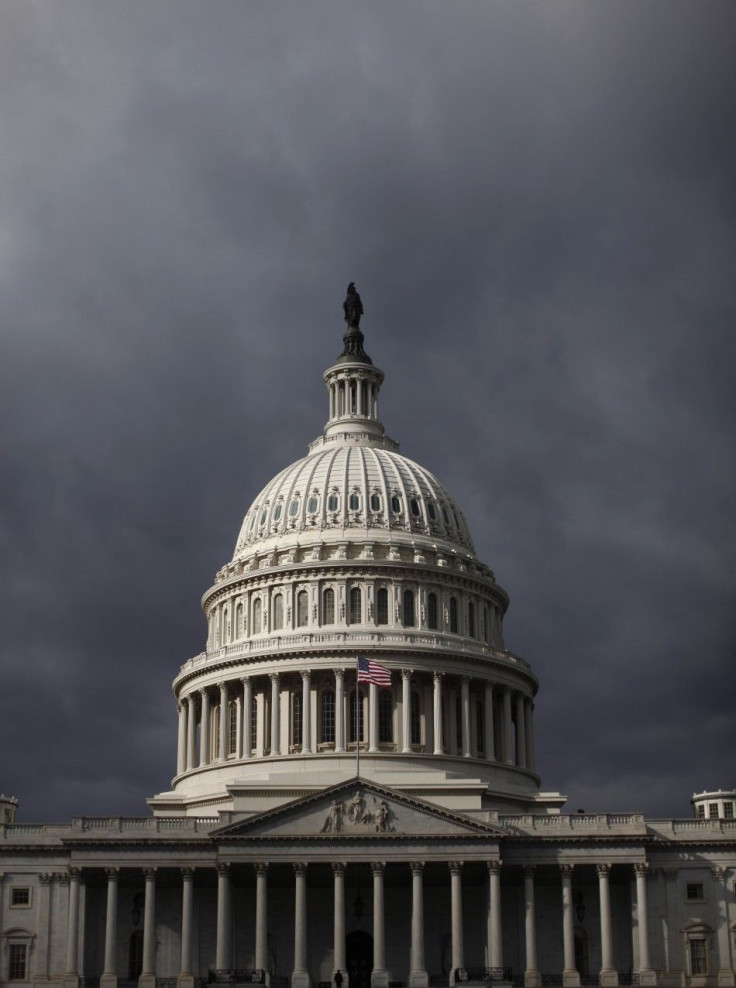Hill Inaction on Deficit, Debt Ceiling Could Leave U.S. Vulnerable to Rising Interest Rates

U.S. residents, and certainly investors, have seen this movie before: federal officials, private sector executives, and economists urging Congress to do the correct and responsible thing, to avert an inaction that could be worse. Far worse.
The most recent warning came from U.S. Treasury Secretary Timothy Geithner, who said it would be lights out for the U.S. economy, if the U.S. debt ceiling is not raised.
Unfortunately, to-date, Democrats and Republicans on Capitol Hill have largely ignored prior warnings regarding the debt, and, in fact, have ventured more toward 'brinksmanship' than substantive sacrifices by constituencies represent by both sides of aisle to both cut the deficit and point the nation toward a balanced budget. What's more, up to now, the leaders in Congress have not paid a price for their inaction.
But that may change. The reason? Greece. The historic Mediterranean nation currently owes about $500 billion or €340 billion and if it defaults, or a comparable credit event occurs, absent a new European Union bailout package, financial institutions in Europe and the United States could become risk-averse, and reduce lending/credit extension, investing, and other liquidity-producing operations.
The significance of the above for Congressional lawmakers, and the typical American? A bad outcome regarding the Greece issue would almost certainly tighten credit in the U.S., resulting in higher interest rates.
For the U.S. government, that means substantially higher borrowing costs to service its national debt.
For the typical American, mortgage interest rates would almost certainly rise - making it harder to purchase a home for many - creating another obstacle for the beleaguered U.S. housing sector, which is still trying to work-off excess supply following the bursting of the housing bubble. Further, some mortgage products may be reduced, or even disappear from the market.
In other words, an unsatisfactory resolution to Greece's debt woes could trigger a second stage of the financial crisis - exactly that the U.S. economy and housing sector do not need right now. Moreover, a second wave of the financial crisis would further slow a currently tepid U.S. economic expansion - complicating efforts to increase job growth to adequate levels above 200,000 new jobs per month.
But the major downside of inaction by Congress on both the budget deficit and the debt ceiling concerns U.S. debt service costs. To-date, the United States, in part due to the dollar's global reserve currency status, has obtained interests rate well below rates that would be charged for a typical country with a high debt-to-GDP ratio. In other words, the U.S. has received an 'interest rate discount' at the borrower window.
However, if the Greece issue triggers contagion, lenders may be less willing to offer loans to the U.S. government at those aforementioned low rates for U.S Treasuries and related notes, and that could substantially increase the portion of the U.S. budget paid to interest on the nation debt.
Higher interest rates and larger payments required for U.S. debt service. Higher mortgage rates for prospective homebuyers. Constrained credit markets that further slow the U.S. economy. The above represent more than sufficient reasons for Congressional Democrats and Republicans to act now to resolve the budget deficit / debt ceiling issue and not leave the nation vulnerable to Greek contagion. As Secretary Geithner has repeatedly underscored, the stakes are high, and the consequences of inaction are huge.
© Copyright IBTimes 2025. All rights reserved.





















